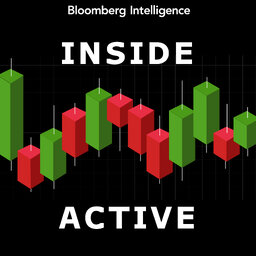Orbis’ Forster on Importance of Intrinsic Value
Recent quarterly results from Japanese companies came out better than expected, with quarterly year-over-year growth of around 26%. In this episode of Inside Active, host David Cohne, mutual fund and active management analyst with Bloomberg Intelligence, along with co-host Laurent Douillet, senior equity strategist for Bloomberg Intelligence, spoke with Graeme Forster, an international equity strategy and global equity strategy portfolio manager at Orbis Investment Management, about the importance of intrinsic value and independent decision-making in stock evaluation. They also discuss how market inefficiencies can create significant investment opportunities, what industry he currently likes in Japan and the role of risk management in investment decisions.
 Inside Active by Bloomberg Intelligence
Inside Active by Bloomberg Intelligence


